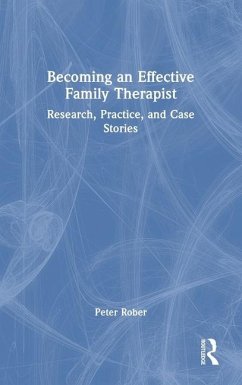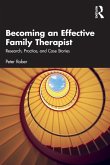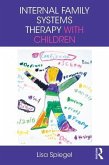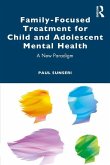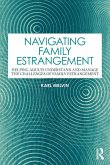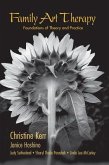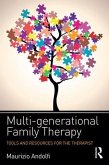This book explores the link between the effectiveness of the family therapist and the complexity of the therapeutic relationship.
For family therapists the therapeutic alliance is complex because there are different family members and the therapist must have an empathic relationship with each of them. Furthermore, the therapist is focused on facilitating the development of trust between the family members. The book highlights the family therapist, not as an interventionist, but as someone who is focused on establishing a good relationship with different family members. Centering the person of the therapist, this book includes research, theory, as well as case studies exploring topics such as the therapist's emotion regulation, the therapist's inner dialogue, and dealing with client feedback. Rober offers an empathetic perspective and accessible framework for family therapists, encouraging readers to use their intuition and self-supervision to build better awareness andstronger connections in the session.
This book is essential for beginning and seasoned family therapists, systemic therapists, and graduate students.
For family therapists the therapeutic alliance is complex because there are different family members and the therapist must have an empathic relationship with each of them. Furthermore, the therapist is focused on facilitating the development of trust between the family members. The book highlights the family therapist, not as an interventionist, but as someone who is focused on establishing a good relationship with different family members. Centering the person of the therapist, this book includes research, theory, as well as case studies exploring topics such as the therapist's emotion regulation, the therapist's inner dialogue, and dealing with client feedback. Rober offers an empathetic perspective and accessible framework for family therapists, encouraging readers to use their intuition and self-supervision to build better awareness andstronger connections in the session.
This book is essential for beginning and seasoned family therapists, systemic therapists, and graduate students.
"What is this process of becoming a family therapist? How do we understand it? Peter Rober offers us a profound, thoughtful and compassionate exploration and description of how we become an effective family therapist for today's families and communities. Drawing on the available research and many examples from his long years of practice experience, Peter's wisdom and love of his work shines through every page of this practical textbook."
Arlene Vetere, VID Specialized University, Oslo, Norway
"In this superb book, Peter Rober helps the reader understand the essence of effective family therapy. Assiduously drawing from a variety of different traditions in family therapy, Rober immerses us in the experiential world of being and becoming a family therapist. The wisdom he transmits emphasizes learning specific methods and drawing from research, but also the accentuates development of the self of therapist to be able to be fully present in sessions. Filled with instructive and moving clinical vignettes, and with many easily applied methods, this is the best book I know for the today's beginning family therapist and a must read for everyone else."
Jay L. Lebow, Ph.D., ABPP, Senior Scholar and Clinical Professor, Family Institute at Northwestern and Northwestern University
"An efficient and passionate book, written from the front lines of psychotherapy. Necessary book for everyone who is learning to do family therapy; essential book for those who really want to BE a family therapist."
Valentín Escudero, Research Center for Systemic Interventions, University of A Coruña, Spain; director of the Family Therapy Program for Children and Adolescents at Risk
Arlene Vetere, VID Specialized University, Oslo, Norway
"In this superb book, Peter Rober helps the reader understand the essence of effective family therapy. Assiduously drawing from a variety of different traditions in family therapy, Rober immerses us in the experiential world of being and becoming a family therapist. The wisdom he transmits emphasizes learning specific methods and drawing from research, but also the accentuates development of the self of therapist to be able to be fully present in sessions. Filled with instructive and moving clinical vignettes, and with many easily applied methods, this is the best book I know for the today's beginning family therapist and a must read for everyone else."
Jay L. Lebow, Ph.D., ABPP, Senior Scholar and Clinical Professor, Family Institute at Northwestern and Northwestern University
"An efficient and passionate book, written from the front lines of psychotherapy. Necessary book for everyone who is learning to do family therapy; essential book for those who really want to BE a family therapist."
Valentín Escudero, Research Center for Systemic Interventions, University of A Coruña, Spain; director of the Family Therapy Program for Children and Adolescents at Risk

